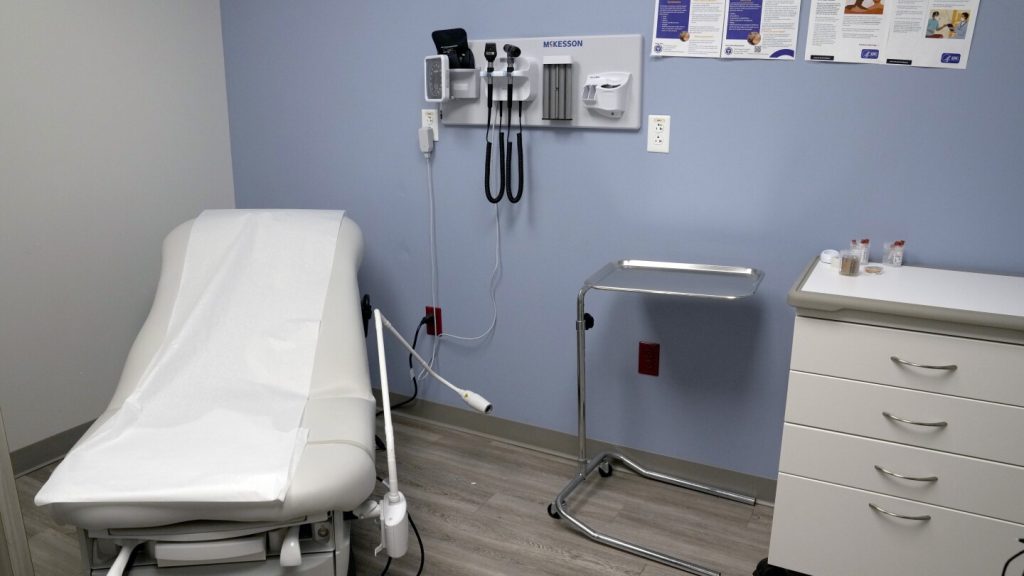Seventeen Republican Attorneys General have filed a lawsuit challenging new federal rules that entitle workers to time off and other accommodations for abortions. The lawsuit, led by Tennessee and Arkansas, argues that the rules are an illegal interpretation of a 2022 federal law. The finalized federal regulations were published on April 15 to provide guidance for employers and workers on how to implement the Pregnant Workers Fairness Act. The rules allow workers to request time off to obtain an abortion and recover from the procedure, a decision that was adopted by the Equal Employment Opportunity Commission on a 3-2 vote along party lines and is set to go into effect on June 18. The lawsuit filed in federal court in Arkansas claims that the regulations exceed the scope of the 2022 law that passed with bipartisan support.
Arkansas Attorney General Tim Griffin criticized the Biden administration for attempting to push through what they couldn’t pass in Congress through administrative fiat. Griffin stated that under this interpretation of the Pregnant Workers Fairness Act, business owners could face federal lawsuits if they do not accommodate employees seeking abortions, even if those abortions are illegal under state law. An EEOC spokesperson referred questions to the Justice Department, which did not immediately respond to a request for comment. Advocates for the Pregnant Workers Fairness Act, such as the group A Better Balance, have condemned the lawsuit as a baseless attack on the protections provided by the law, emphasizing the importance of defending workers’ rights under the Act.
The EEOC clarified that the new law does not mandate employers or employer-sponsored health plans to cover abortion-related costs. The most common accommodation sought under the Pregnant Workers Fairness Act regarding abortion is time off to attend a medical appointment or recover, which does not have to be paid. The states joining Tennessee and Arkansas in the lawsuit are Alabama, Florida, Georgia, Idaho, Indiana, Iowa, Kansas, Missouri, Nebraska, North Dakota, Oklahoma, South Carolina, South Dakota, Utah, and West Virginia. The EEOC’s decision to implement the rules has raised concerns and sparked legal actions from these states, highlighting the ongoing debate surrounding women’s health and reproductive rights in the United States.
Critics of the lawsuit argue that it is a political maneuver to undermine an important protection for the health and economic security of millions of families. Dina Bakst, co-president of A Better Balance, condemned the lawsuit as a bad faith effort to politicize the vital protections provided by the Pregnant Workers Fairness Act. She expressed a commitment to defending workers’ rights under the legislation despite the legal challenges it may face. The lawsuit represents a broader trend of attacks on women’s health and reproductive choice, with advocates vowing to continue fighting for the rights and protections guaranteed by the Act. The outcome of this legal battle will have significant implications for the implementation of the Pregnant Workers Fairness Act and the rights of pregnant individuals in the workplace.
In conclusion, the lawsuit filed by Republican attorneys general from 17 states against the new federal rules entitling workers to accommodations for abortions reflects a broader political and ideological divide on women’s health and reproductive rights. The battle over the interpretation and implementation of the Pregnant Workers Fairness Act highlights the ongoing tensions between federal and state laws on these issues. As the legal proceedings unfold, the implications for workers’ rights, businesses, and healthcare providers will become clearer. The outcome of this lawsuit could shape the future of workplace protections for pregnant individuals and determine the extent of employer responsibilities regarding abortion accommodations. The controversy surrounding the Pregnant Workers Fairness Act underscores the complex and contentious nature of reproductive rights in American society and the ongoing struggle for gender equality and autonomy.


